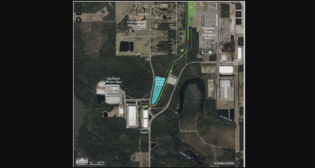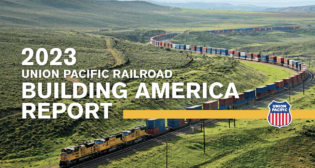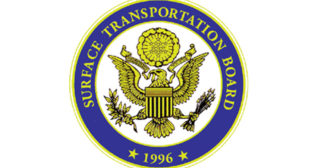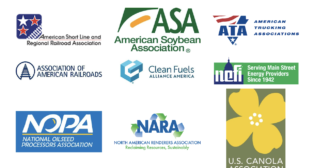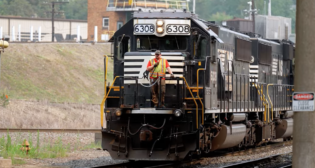
Report from MARS Summer 2023 Conference
Written by Ron Sucik, Contributing Editor and Principal, RSE Consulting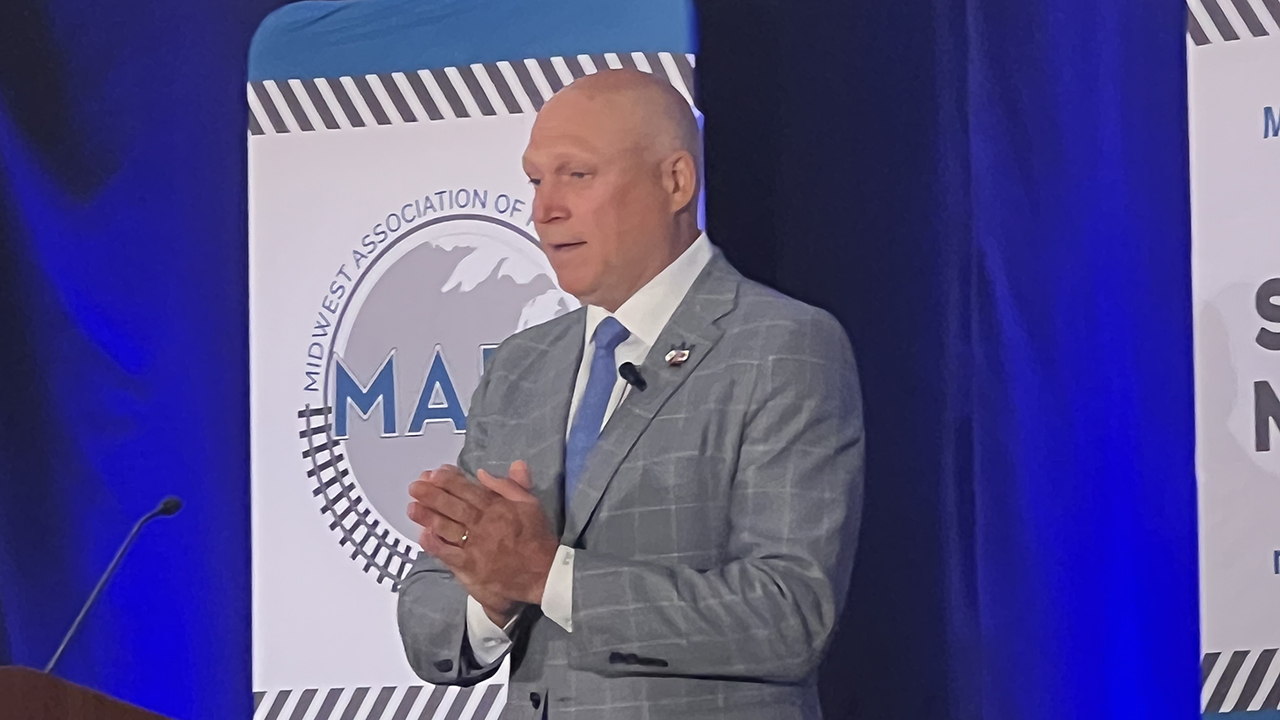
Keynote speaker John Brooks, Executive Vice President and Chief Marketing Officer, Canadian Pacific Kansas City.
“Delivering Supply Chain Success with Rail Innovation and Sustainability” was the theme of this year’s Midwest Association of Rail Shippers (MARS) Summer Conference in Geneva, Wisc., July 11. Other than the keynote speaker, you could sum up the presentations with an old Readers Digest Review as “Railroad Reliability, Rail/Supplier Relationships and Reducing the Carbon Footprint.”
Keynote speaker John Brooks, Executive Vice President and Chief Marketing Officer, Canadian Pacific Kansas City, gave an overview of the new face and operations of the recent merger of CP and KCS. His presentation pointed out the three-nation connectivity across 20,000 track-miles, serving 30 ports and 30 automotive facilities. Brooks emphasized CPKC’s Mexican advantage stretching all the way to the Port of Lázaro Cardenas, pointing out that Lázaro could be an alternative port of entry if strikes were to occur at the West Coast ports.
CPKC will promote additional cold storage facilities for many of the food products moving south and north. Its MMX 180/181 service provides premier cross-border services with traffic from Chicago to Mexico City, with rail service equaling or beating existing truck services.
CPKC is investing in hydrogen locomotives, building on their emissions advantage over trucks. It already has two prototype locomotives with 1,000 miles of service in operation. With additional conversion to solar power at CPKC’s Canadian headquarters in Calgary and yard facilities, combining this with a future fleet of hydrogen linehaul and yard service locomotives, the goal is to reach zero emissions.
The “Supply Chain Success with Rail” panel with Monica Freeman, Director of Rail Transportation, CHS; Doug Grew, Transportation Manager, PCA, and Joe Monfredi, Director of Logistics Services, US Steel, emphasized first-mile/last-mile and the need for service and equipment reliability.
The “Rail/Shipper Relationships” panel looked back to the bygone days of Class I customers having direct contact with railroad sales reps, car agents, account reps and conversations with trainmasters. These positions still exist, but they’re centralized and typically have a lot of turnover. Shippers would like to have them back in the field, at their level making contact. The panelists also feel the railroads need to focus more on marketing rather than operational aspects. They also encouraged stronger short line/Class 1 relationships because of equipment scarcity.
Keven Murray, Vice President of Supply Chain, Red Gold foods, talked about transparency when a problem arises:
- Perform situation analysis.
- Find out everything you can.
- Always tell the truth—can you adapt?
- Figure out the problem, put it on the table and ask for help if needed.
CSX Head of Customer Solutions Shannon Baker covered “Expansion and Sustainability.” Focusing on carbon savings, she explained how CSX’s Carbon Calculator provides specific insight into how much less carbon dioxide is produced when shipping by rail instead of truck. Environmental initiatives continue to have strong focus at CSX. Wabtec’s Trip Optimizer system on locomotives allows engineers to optimize train handling for greater fuel efficiency. The railroads is are also exploring the use of alternative fuels to improve sustainability. CSX also provides a program displaying switching performance, allowing shippers to see all facets of their trip plans.
Surface Transportation Board Member Patrick Fuchs gave a detailed presentation on the services and operation of the STB. The agency has created the Railroad-Shipper Transportation Advisory Council (RSTAC), an advisory committee statutorily created by the Interstate Commerce Commission Termination Act of 1995. RSTAC advises the Board, the Secretary of Transportation and Congress on railroad transportation policy issues of particular importance to small shippers and small railroads, such as railcar supply, rates and competitive matters. Its 15 appointed members consist of senior officials representing large and small shippers, large and small railroads, and one at-large representative. STB has also created a panel of representatives from Class I, II and III railroads and large and small shippers to write a white paper on how the STB should approach future rail regulation.
Luncheon keynote speaker Union Pacific AVP Marketing and Sales Operations Dan McLaughlin spoke about developing rail solutions for customers to grow using technology. RailPulse was emphasized to amplify visibility for customers. Looking forward, he said, UP will be “working collaboratively and investing to grow with customers, leveraging technology to enhance supply chain visibility, and driving sustainable transportation solutions together.”
Jason Cultta, President, Midwest Food Products, spoke about rail opportunities in food. The presentation was very informative about the food industry and the issues related to rail service. Car cycle and placement delays can “destroy” a company, he noted “Short lines can provide an alternative in some lanes but require more time. Railroad marketing staffs have really gotten leaner, and it is hard to have a good relationship.”
Todd Tranausky, Vice President Rail & Intermodal, FTR, gave a presentation on economic indicators. His takeaway: “Although inflation is a problem, unless the Federal Reserve does something drastic, we should be able to dodge the bullet of a recession.”
